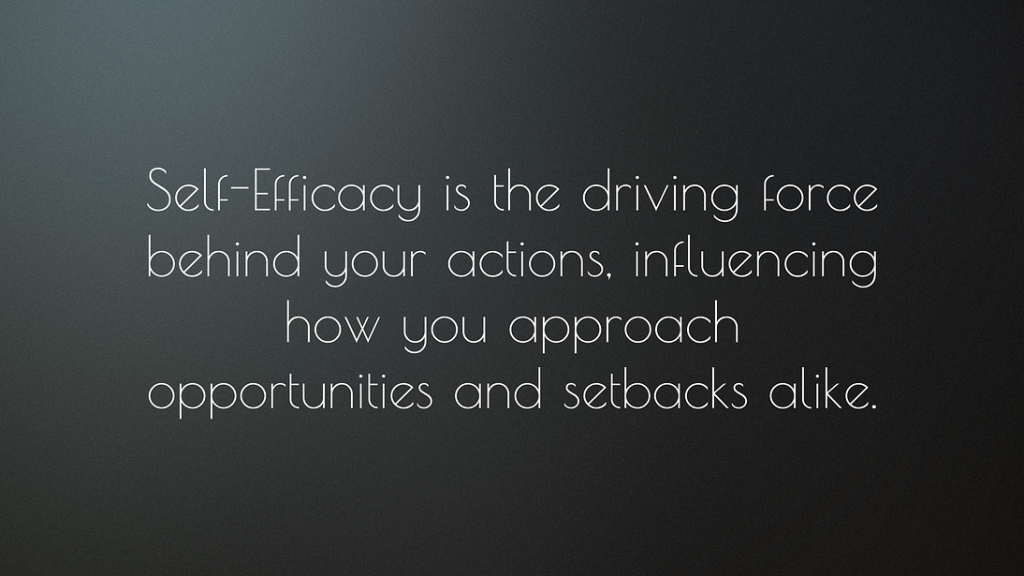Why do some people confidently pursue their dreams while others hesitate? The secret lies in self-efficacy—your belief in your ability to succeed. Developed by psychologist Albert Bandura, self-efficacy influences how you tackle challenges, bounce back from setbacks, and stay motivated. The good news? It’s a skill you can develop.
What is Self-Efficacy?
Self-efficacy isn’t just confidence—it’s the belief that you can achieve specific goals. Unlike self-esteem (your overall self-worth), self-efficacy is task specific. Whether you’re learning a new skill, launching a project, or making a life change, your level of self-efficacy determines your approach.
What Shapes Your Self-Efficacy?
1. Mastery Experiences (Success Builds Confidence)
Your past successes fuel your confidence. Each time you accomplish something; your brain registers it as proof that you can succeed again.
Example: If you successfully give a presentation, you’re more likely to feel confident doing it again.
2. Vicarious Learning (Seeing is Believing)
Watching others succeed can boost your belief that you can too—especially if they started where you are.
Example: Seeing a friend run a marathon might inspire you to believe you can train for one too.
3. Social Persuasion (Encouragement Matters)
Positive feedback and encouragement from mentors, peers, or colleagues reinforce your self-belief.
Example: A coach telling you, “You’ve got this!” can make all the difference in your performance.
4. Emotional & Physiological States (Your Mindset Matters)
Anxiety and stress can weaken self-efficacy, while calmness and enthusiasm enhance it.
Example: Taking deep breaths before a big event can shift your mindset from doubt to confidence.
How to Strengthen Your Self-Efficacy
1. Set Achievable Goals
Break big goals into smaller, manageable steps to build momentum.
Action Step: Instead of saying, “I want to write a book,” start with, “I will write 500 words a day.”
2. Build Competence Through Practice
Skill-building enhances self-efficacy. The more you practice, the more confident you become.
Action Step: If you fear public speaking, start by practicing in front of friends before tackling a large audience.
3. Use Positive Self-Talk
Replace negative thoughts with empowering ones.
Action Step: Instead of “I’m not good at this,” reframe it as, “I’m learning and improving.”
4. Visualize Success
Mental imagery boosts confidence. Picture yourself succeeding before taking action.
Action Step: Before an interview, visualize yourself answering questions with ease and confidence.
5. Reframe Failure as Learning
Instead of fearing failure, see it as a lesson.
Action Step: Analyze setbacks—ask, “What can I do differently next time?”
6. Persevere Through Challenges
Successful people don’t quit—they adapt.
Action Step: When facing obstacles, remind yourself of past challenges you’ve overcome.
7. Surround Yourself with Supportive People
Positive influences can uplift your self-efficacy.
Action Step: Seek mentors or a community that encourages your growth.

Final Thoughts: Take Action Today
Self-efficacy isn’t something you’re born with—it’s something you build. The more you practice these strategies, the stronger your belief in yourself becomes.
Challenge: Pick one strategy and apply it today. Whether it’s setting a small goal, practicing positive self-talk, or tackling a challenge head-on, start now.
